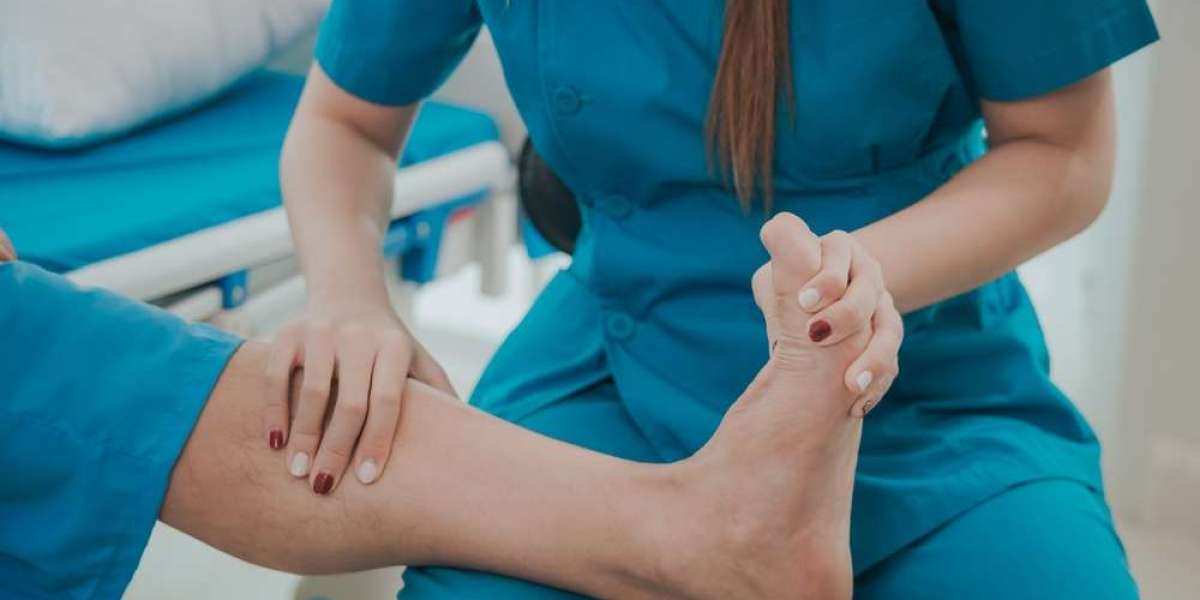The Achilles tendon is the strongest and thickest tendon in the human body, connecting your calf muscles to the heel bone. This tendon plays a crucial role in walking, running, jumping, and virtually every movement involving the feet and lower legs. Despite its strength, the Achilles tendon is surprisingly prone to injury — especially among active adults and athletes.
Whether you're a weekend runner, a seasoned athlete, or someone who enjoys an active lifestyle, you're at risk of developing an Achilles injury if this critical tendon is overused, neglected, or improperly conditioned. At Charters Towers Podiatry in Richmond Hill, we specialize in Achilles injury recovery using advanced therapies like shockwave treatment, manual physiotherapy, and personalized rehabilitation plans to help you get back on your feet — literally.
Why Are Achilles Injuries So Common?
There are several reasons why Achilles tendon injuries frequently occur in active individuals:
1. Overuse and Repetitive Strain
Running, jumping, and even brisk walking can place repetitive strain on the Achilles tendon. Over time, this can lead to microtears, inflammation, and eventually Achilles tendinopathy or even full ruptures.
2. Poor Footwear and Biomechanics
Wearing unsupportive shoes, especially during high-impact sports, puts additional stress on the tendon. Likewise, flat feet, high arches, or improper gait mechanics can alter weight distribution and strain the Achilles tendon.
3. Lack of Warm-Up and Stretching
Failing to properly warm up or stretch before exercising can leave the tendon tight and more susceptible to tears or inflammation.
4. Aging and Tendon Degeneration
As we age, tendons naturally lose elasticity. Active adults in their 30s, 40s, and 50s are more likely to experience Achilles pain due to natural wear and tear.
5. Sudden Increases in Activity
Abruptly increasing exercise intensity — such as running longer distances or adding high-impact workouts — can shock the tendon and lead to injury.
Symptoms of an Achilles Injury
If you're experiencing any of the following symptoms, it may be time to consult a podiatrist for
Achilles pain treatment:
· Pain or stiffness in the back of the heel
· Swelling around the tendon
· Pain that worsens with activity
· A popping sound followed by severe heel pain (possible rupture)
· Difficulty pointing the toes or pushing off the foot
Types of Achilles Injuries
1. Achilles Tendinitis
A common overuse injury, tendinitis causes inflammation of the tendon and results in pain, tenderness, and swelling.
2. Achilles Tendinosis
This condition refers to chronic degeneration of the tendon due to untreated tendinitis or repeated strain without proper healing.
3. Partial Tear or Rupture
A more serious injury where the tendon is either partially or completely torn, usually requiring urgent care or a longer recovery timeline.
Treatment Options at Charters Towers Podiatry
At Charters Towers Podiatry, we offer a range of evidence-based treatments tailored to your injury, lifestyle, and recovery goals. We don't believe in one-size-fits-all solutions — our goal is to help you heal faster and stronger.
1. Comprehensive Physiotherapy
Our expert team uses hands-on physiotherapy techniques to improve tendon flexibility, reduce pain, and restore normal movement patterns. This includes guided stretching, strengthening, and manual therapy.
2. Shockwave Therapy
For more persistent injuries, shockwave therapy is a game-changer. This non-invasive treatment uses sound waves to stimulate healing and blood flow to the damaged tendon tissue. It's especially effective for chronic Achilles tendinosis.
3. Custom Orthotics and Footwear Advice
We evaluate your gait and foot biomechanics to recommend orthotics or shoe modifications that provide better support and reduce strain on the Achilles tendon.
4. Dry Needling and Acupuncture
Some patients benefit from adjunct therapies like dry needling or acupuncture, which can help release tight muscles and enhance the healing response.
5. Home Exercise Programs
To support long-term recovery, we provide personalized home exercise routines designed to continue strengthening the tendon and prevent future injuries.
What to Expect from Your Recovery Journey
Recovery from an Achilles injury can range from a few weeks to several months, depending on the severity. Here's what a typical recovery timeline looks like:
Week 1–3: Rest and Inflammation Control
· Ice application, rest, and limited activity
· Gentle range-of-motion exercises
· Initial physiotherapy and shockwave sessions
Week 4–6: Strength and Flexibility
· Progressive loading exercises for the calf and Achilles tendon
· Stretching and flexibility work
· Gait retraining if necessary
Week 7+: Return to Sport or Activity
· Advanced strengthening
· Sport-specific movement drills
· Continued use of orthotics or supportive footwear
With the right treatment plan, most patients see significant improvement in pain, mobility, and function. At Charters Towers Podiatry, we monitor your progress closely to ensure optimal recovery.
Preventing Future Achilles Injuries
Recovery is only part of the solution — long-term success means taking proactive steps to prevent re-injury.
Here are our top prevention tips:
· Stretch Daily: Include calf stretches and Achilles-specific mobility exercises in your routine.
· Warm Up Properly: Always begin your workouts with 5–10 minutes of light aerobic activity.
· Gradually Increase Intensity: Avoid jumping into high-intensity training without a proper build-up.
· Wear Supportive Footwear: Invest in high-quality shoes designed for your activity level and foot shape.
· Cross-Train: Mix in low-impact activities like swimming or cycling to give your tendons a break.
Why Choose Charters Towers Podiatry in Richmond Hill?
If you're in Richmond Hill or the surrounding areas and dealing with Achilles pain, there's no better place to start your recovery than with the experienced team at Charters Towers Podiatry. Here's what sets us apart:
✅ Personalized Treatment Plans






